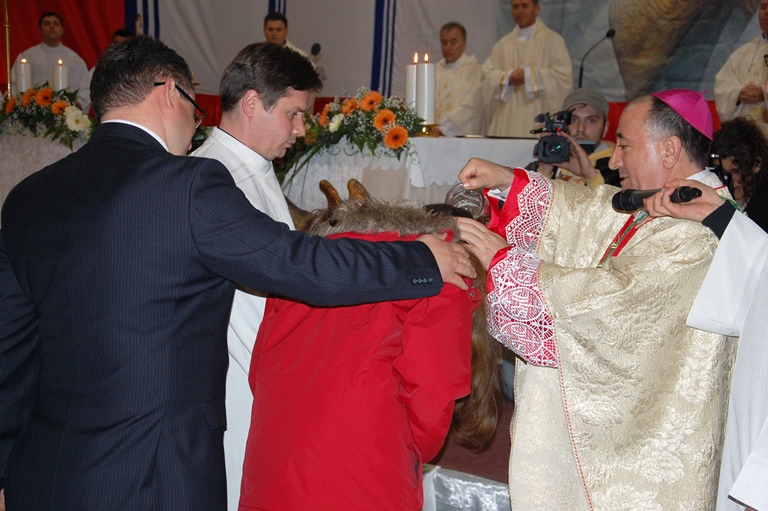|
Kosovo's 'crypto-Catholics' are making their way back to the Church
Wednesday, October 28, 2015
"Before the Ottomans Islamicized the region of today's Balkans, we were Christians."
By Esther Gaitan-Fuertes
NEW YORK—Kosovo, which declared independence from Serbia in 2008, is home to a
little known remarkable community of so-called “crypto-Catholics.” Their roots,
explained Magda Kaczmarek, who oversees a number of countries in Eastern Europe
at the international Catholic charity Aid to the Church in Need, are in
Catholicism, even though they are considered to be Muslims.
Their stories
goes back hundreds of years: in the 16th century, conquering
Ottomans forced the region’s population to convert to Islam. Most complied to
avoid discrimination—but in their hearts they remained Christian. The majority
hailed from the region of Rugova, which was the childhood home of the late
former president of Kosovo, Ibrahim Rugova. It is public knowledge that he was
baptized shortly before his death; he also gave a plot of land to the Church in
the heart of the capital city of Pristina, where now stands the new Cathedral
of St. Mother Teresa.

There are some
50,000 regular Catholics in the fledgling nation, whose population of 1.9
million is largely Muslim. However, says Kaczmarek, a growing number of
Muslims, especially young people, are discovering their Christian roots and are
joining the Church, which “expects these young people to spread their faith in
their personal networks and later on within their families,” said Ms.
Kaczmarek, who just returned from visiting Kosovo.
Father Marjan
Uka is a Kosovo priest charged with looking after the newly baptized ‘crypto-Catholics.’
He has to make do with very little funding from the Church, relying on aid
agencies instead. Mass stipends are one form of income. Adnan (not his real
name) is one of the priests’ charges. Along with his wife and two children, he
was recently baptized.
“Compared to
Islam,” he said, “Christianity has a depth that is filled with God’s light.” “It
is as if he wants to pray day and night,” said Ms. Kaczmarek, “as if he wants
to make up for the years that, until his baptism, he has officially lived as a
‘Muslim.’” Unfortunately, Adnan’s village does not yet have its own church.
Veton, a small
business owner in the same village, said that “before the Ottomans Islamicized
the region of today’s Balkans, we were Christians.” Veton has never been to a mosque and was never religious. He
is currently taking catechism classes, but is not sure if his adult children
will make the step with him. “Their friends may not understand,” he said.
Ms. Kaczmarek said that “crypto-Catholics are not
badly considered by Kosovo’s Muslims; on the contrary, when someone is baptized
they are congratulated. It is considered a big celebration, as the Catholic
Church in Kosovo is well respected.”
However, she added, “we have learned that lately an
‘imported Islamism’ is bringing with it an intolerant attitude toward other
religions.”
Aid to the Church in Need has
supported the Catholic Church in Kosovo for years. ACN has helped fund the
construction of the Cathedral of St. Mother Teresa in Pristina, the building of
residences for women religious and the renovation of rectories.
A baptism in Kosovo; ACN photo
|